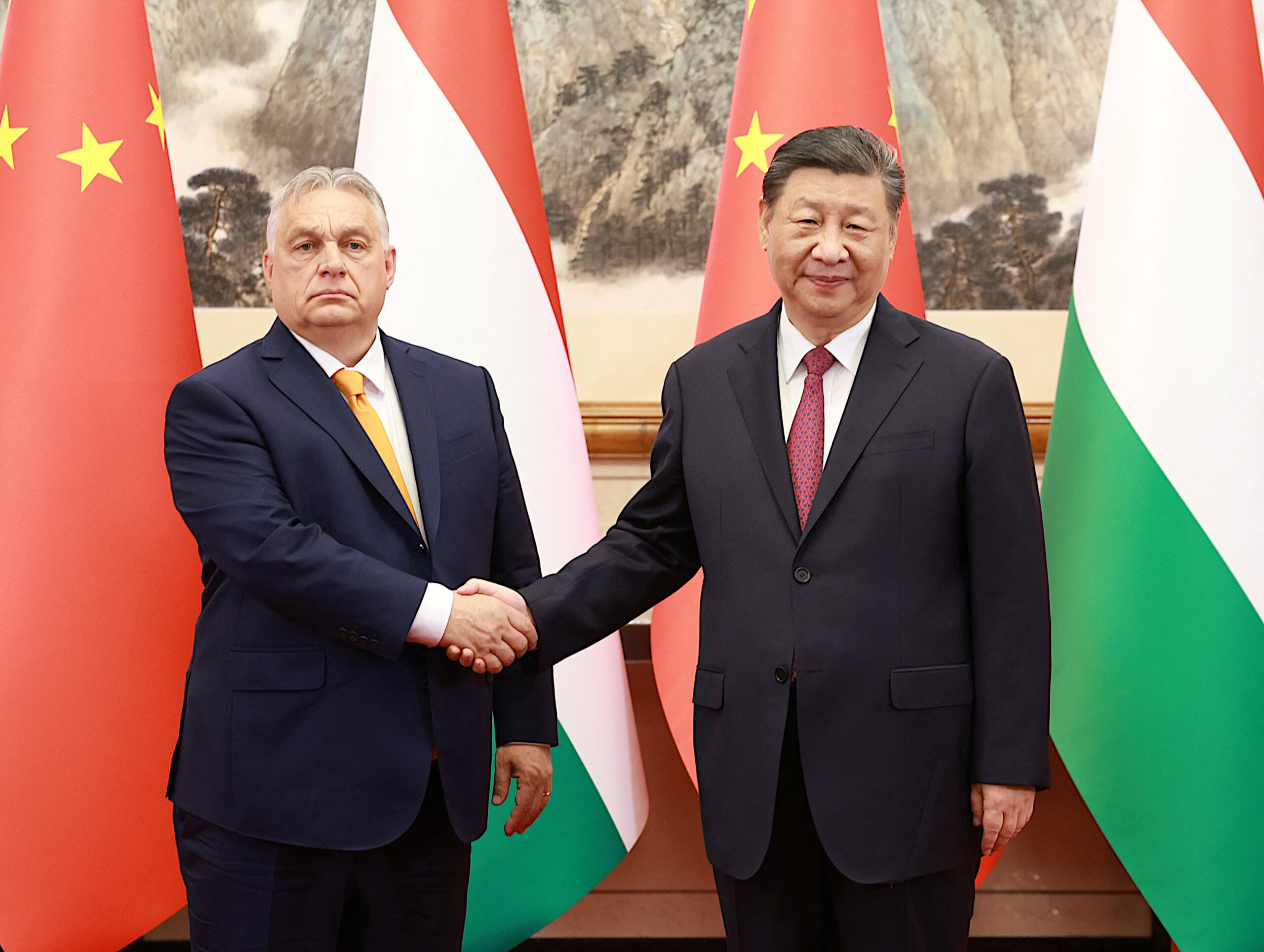
Unexpectedly traveling to China, Orban of Hungary supports Xi’s peace proposal
Days after his unannounced travel to Beijing infuriated several leaders of the European Union, Hungarian Prime Minister Viktor Orban met Chinese President Xi Jinping on Monday to discuss a possible peace agreement with Ukraine.
Orban and Xi met for what Orban termed as the third leg of a “peace mission” that he has undertaken without the support of the European Commission or Ukraine at the Diaoyutai official Guest House in Beijing, according to Chinese official media.
Orban met with Ukrainian President Volodymyr Zelenskiy in Kyiv and was welcomed by the Kremlin, despite the fact that Hungary only took up the rotating presidency of the EU this month. The visit provoked sharp criticism from his friends.
As he landed in Beijing, Orban, the EU leader with the best ties to both Xi and Putin and an opponent of Western military help to Ukraine, declared on his official X account that “Peace Mission 3.0.”
Closely aligned with Russia, China has been endorsing a six-point peace plan it released with Brazil in May, which calls for an international peace conference “at a proper time” and equal participation from Russia and Ukraine.
By hosting a sizable international summit in Switzerland last month—to which Moscow was not invited—Ukraine is aiming to garner broad support from around the world for its ideas on how to end the conflict with Russia before starting talks with Putin.
However, opposition is mounting to Kyiv’s attempt to isolate Russia. China did not attend the Swiss meeting, but Moscow has supported its own peace initiative. Currently in Moscow, Indian Prime Minister Narendra Modi is expected to discuss matters pertaining to Ukraine.
Chinese state media reported that Xi urged Orban, “The international community should create conditions for the resumption of direct dialogue and negotiations between the two sides and provide assistance.”
“It is in the interests of all parties to seek a political solution through an early ceasefire,” he said.
Speaking only two months after Xi’s visit to Budapest, Orban cited China as “a key power in creating the conditions for peace in the Russia-Ukraine war” as the rationale for their meeting.
Russia valued Orban’s attempts to make positions clear in an attempt to resolve the dispute, according to the Kremlin.
Zelenskiy stated that only global powers could serve as mediators, and Orban was not qualified to do so.
Do we have a lot of these kinds of countries in the world? Not many. These nations, in my opinion, are China and the United States. And the EU, not just one nation, but the entire EU,” Zelenskiy declared while in Poland.
NATO CONFERENCE
Days before he is supposed to attend a NATO conference in Washington, D.C., which will discuss giving Ukraine further help, Orban is traveling to China.
Additionally, the leader of Hungary is visiting China shortly after the European Commission announced last week that import duties of up to 37.6% would be applied on electric vehicle manufactured in China.
While other EU countries are trying to become less dependent on Beijing, this central European country has emerged as a major trade and investment partner for China.
Hungarian Foreign Affairs and Trade Minister Peter Szijjarto informed Hungarian state media that the two sides had secured an agreement on relaunching pork and poultry exports to China, despite Beijing’s threats to apply punitive anti-dumping measures against European pork imports.
Furthermore, he said, Chinese enterprises at the vanguard of the electromobility shift would keep investing in Hungary, generating roughly 25,000 employment.
As Chinese companies seek to increase exports in the face of weak domestic demand, EU trade policy has become more protectionist due to worries that China’s production-focused economic model could result in an oversupply of low-cost goods.
Beijing refutes Brussels’ allegations that China’s electric cars profit from unfair state subsidies, which has made Beijing particularly concerned about the country’s electric car industry.
China hopes Hungary would “play an active role” in expanding China-EU relations, Xi told Orban, despite some EU leaders quickly pointing out that Orban does not represent the 27-nation bloc just because Hungary is the EU president.
Robert Habeck, the vice chancellor of Germany, stated that Orban does not speak for Europe and that Hungary’s policies frequently do not reflect the fundamental principles of EU thought.
All Categories
Recent Posts
Tags
+13162306000
zoneyetu@yahoo.com



